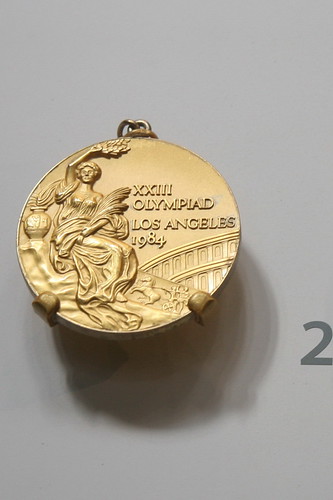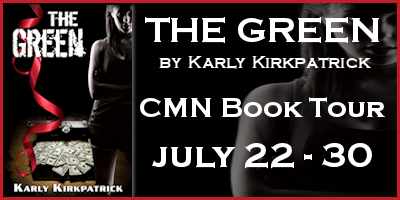"American Spaz The Novel" is a coming-of-age story with girls and love and death - fists and knives and guns. After going through double tragedies as a child Henry Kreiser grows into a teenager he does not want to be.
It starts in 1978 in a suburb of Philadelphia and continues on the farms of a rural boarding school for disadvantaged children. It ends on the tough streets of Trenton, New Jersey in 1988. American Spaz is auto-biographical fiction by Greg Kieser and chronicles a decade of his life - from 7 to 17 years old - during which time he lost both parents, moved from place to place, and did whatever he needed to do to survive. As the youngest of six children he had many opportunities, during that decade, to rely on, and sometimes reject, the love of family.
A newspaper article about Kieser's late father speaks to "The Truth" behind the fiction. And, in the short film "How I Became a Spaz (and you can too)" Kieser himself attempts to explain his unique approach to achieving social and financial success, while summarizing the steps others can take. An interview with the author further allows him to elaborate on these subjects and share his outlook on storytelling. All three - the article, the film and the interview - can be found at americanspaz.com
Buy Links:
He tossed and turned throughout the night. Doors opened and closed several times in the adjacent rooms. He was half awake when he sensed somebody watching. He sat up in bed and looked to the hallway where he saw a teenage black girl in a white tube dress with a fat, white man in slacks and a button down shirt. The odd couple moved down the hallway before Henry could make sense of anything. He fell back asleep. A bit later, he woke to the sound of grunting and moaning—the fat man. There was a steady pounding on a wall. The noises crescendoed and then stopped suddenly.
“Get off me,” he heard the girl demand.
Doors opened and closed again. Then a sweet smell of burning rubber reached Henry’s nose. He slept again. Henry slept for no more than an hour when a truck moving on the street outside woke him. He popped up. His head spun and his mouth and throat were parched and scratchy. Out in the hallway he snuck down to the next room, where the door was ajar. He saw the girl sprawled across the bed, with the tube dress bunched around her waist. She was fully exposed from the waist down except for one knee which had a sheet lying across it. A makeshift pipe of tinfoil lay on the floor next to a lighter. Henry pulled the door shut and went downstairs. Willy was asleep on the mattress in the middle room when Henry snuck past and escaped out the back door.
The sunrise was just arriving and a dawn breeze blew trash around a wild patch of grass in a broken sidewalk. He walked from Tyler Street down to the train station. Inside, working men in blue shirts drank coffee and watched the arrivals and departures board—rushing off for a train when Henry arrived. He went to the bathroom and washed his face. He took his bandanna off and tucked the gold chain into his shirt.
Outside of the station he stood at a railing, looking into a wooded area that sat between the railroad tracks and a row of homes. He was tired and nervous and the sound of a car passing on the road nearby startled him. How could I ever?, he thought. How could I ever be a father? He saw a path into the wooded area strewn with beer bottles and trash. Again, a car driving on the road nearby startled him, so he jumped over the railing, onto the path and into the woods. It was cool, damp and dark on the path. A train passed on the tracks nearby—its brakes scraping and hissing. Then something, or someone, moved suddenly in the underbrush, so Henry ran away quickly. He emerged from the wooded area onto Greenwood Avenue, and then passed in front of the huge, empty Trenton Central High School. The roads were filling up with cars and trucks. When he got onto Hamilton Avenue his pace increased. He went directly to Esther’s house.
Henry pulled his keys out and was about to enter the apartment, when he heard somebody call him from a block away. He saw Willy running up the street. “Kreiser! Where you goin’?”
“I’m goin’ in to talk to my girl!”
“What!?” Willy arrived quickly.
“You heard me.”
Willy shoved Henry back from the door. “You told me you was gonna take me to the west side.”
“No I didn’t!” Henry motioned as if he was going to shove Willy back but he stopped, and instead he searched through his keys and approached the door again.
Willy grabbed Henry’s arm and pulled him violently away. “Let’s go Kreiser. Don’t let your brotha down right now. I need to get over there in thirty minutes or I’m fucked. They waitin’ on me.”
Henry shook off Willy’s tight grip. “Willy! Would you stop this fuckin’ shit?”
Willy stood back.
Henry approached him. “I told you,” he said with a hushed tone. “I don’t want to have anything to do with it.”
“But, Kreiser, you said you would take me. Now, I’m gonna lose a major opportunity.”
“When did I say I would take you?”
“Last night, when you started drinkin’ the rum.”
Henry thought to himself for a moment. “I said I would take you?”
“Yeah man. And I depended on you. I would have taken another ride over there.”
“I always feel like you’re trying to manipulate me Willy.”
“Well, you’re wrong about that, man. I just wanted to give you an opportunity. You make your own fuckin’ decisions. Right? And last night you made your own decision when you told me you would take me over there. So, I canceled the other ride I had setup. Now you gotta take me. It’s the only right thing to do.”
Henry let out a long sigh.
“Come on.” Willy knocked his shoulder into Henry’s. “You’ll be back before Esther even wakes up.”
Henry searched his eyes. “What do I gotta do?”
“Just take me to the west side. I run in and make the pick-up and we leave. You ain’t even gonna be there when the deal goes down. Then I give you two hundred dollars.”
Henry shrugged and shook his head. They approached his car and got in.
About the author
GREG KIESER was born in Langhorne, Pennsylvania in 1970. He currently resides in Brooklyn, New York and works with the Robin Hood Foundation, a non-profit organization dedicated to fighting poverty in NY. AMERICAN SPAZ THE NOVEL, his first published work, is auto-biographical fiction and chronicles a decade of his life - from 7 to 17 years old - during which time he lost both parents, moved from place to place, and did whatever he needed to do to survive. As the youngest of six children he had many opportunities, during that decade, to rely on, and sometimes reject, the love of family.
Presented by:



































